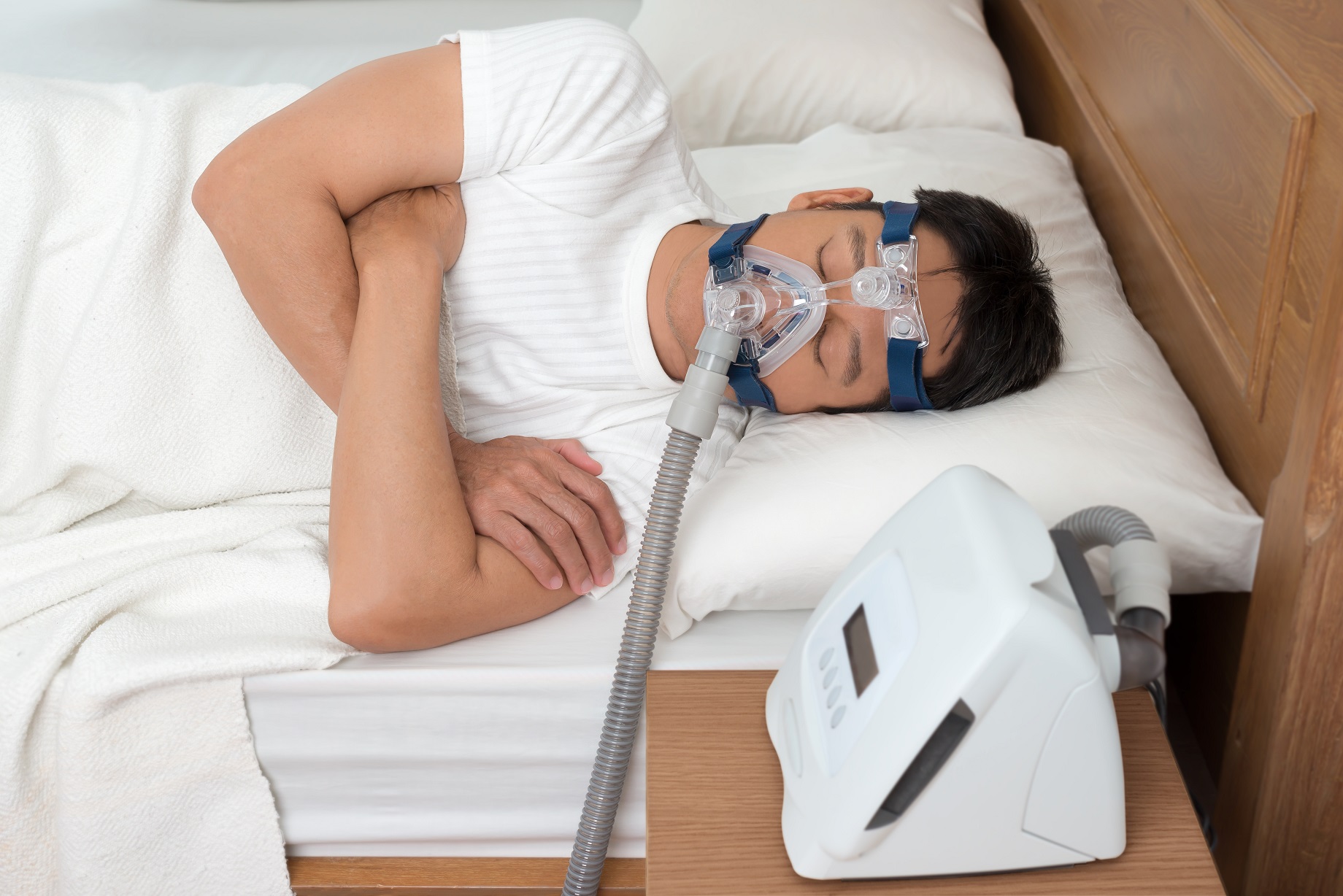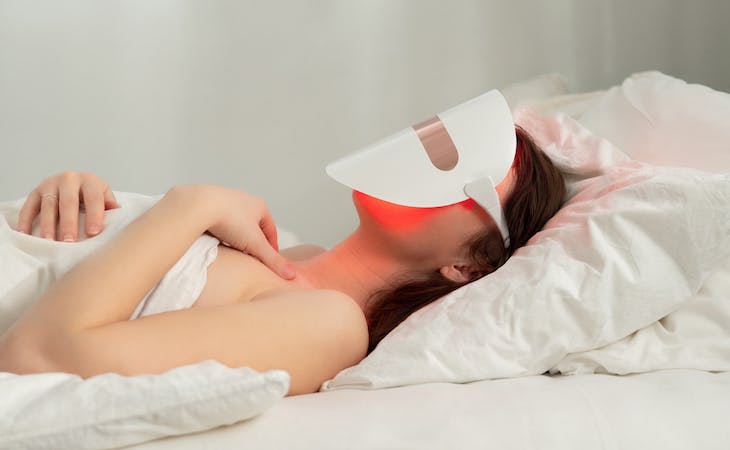Efficient Therapy Solutions for Handling Sleep Disorders and Enhancing Relaxed Sleep
In the world of healthcare, the monitoring of sleep disorders and the mission for relaxed sleep are pivotal parts of total well-being. Effective treatment services provide a complex approach to take on these difficulties, ranging from cognitive behavioral treatments to all natural methods that promote relaxation and mindfulness. The expedition of numerous methods, consisting of the integration of drug and light therapy, opens a world of possibilities in the pursuit of better sleep top quality. As we navigate the detailed landscape of sleep problems and seek to enhance our rest experience, a much deeper understanding of these therapy remedies may hold the trick to unlocking a much more rejuvenating and satisfying restorative trip.
Cognitive Behavior Modification for Sleeplessness (CBT-I)
Cognitive Behavior Therapy for Sleeplessness (CBT-I) is an organized, evidence-based therapy approach that focuses on dealing with the hidden aspects adding to rest disturbances. This sort of therapy aims to modify actions and thoughts that exacerbate sleeplessness, eventually advertising healthy and balanced sleep patterns. CBT-I usually involves several essential parts, including cognitive therapy, rest constraint, stimulation control, and rest hygiene education.
Cognitive treatment aids individuals determine and alter unfavorable idea patterns and beliefs regarding sleep that may be impeding their capacity to fall or remain asleep. Sleep limitation includes restricting the amount of time invested in bed to match the person's real sleep duration, therefore raising sleep effectiveness (insomnia therapy). Stimulus control methods aid develop a solid organization between the bed and rest by encouraging people to visit bed only when sleepy and to stay clear of taking part in stimulating tasks in bed
Additionally, sleep hygiene education concentrates on establishing healthy and balanced rest routines, such as keeping a regular rest routine, producing a relaxing going to bed routine, and maximizing the sleep atmosphere. By resolving these variables adequately, CBT-I supplies an effective non-pharmacological intervention for managing sleep problems and improving general sleep top quality.
Rest Hygiene Practices
Having established the foundation of cognitive restructuring and behavior modifications in attending to sleeplessness with Cognitive Behavioral Therapy for Sleeping Disorders (CBT-I), the emphasis now shifts in the direction of checking out crucial Sleep Health Practices for keeping ideal sleep high quality and general well-being.
Rest health methods incorporate a range of routines and ecological elements that can dramatically impact one's ability to fall asleep and stay asleep throughout the evening. Constant rest and wake times, creating a relaxing going to bed regimen, and maximizing the rest environment by keeping it dark, peaceful, and cool are critical elements of good sleep health. Restricting direct exposure to screens prior to going to bed, avoiding stimulants like high levels of caffeine near going to bed, and involving in routine exercise throughout the day can additionally promote far better sleep high quality.
Furthermore, exercising leisure strategies such as deep breathing exercises or reflection prior to bed can assist calm the mind and prepare the body for rest. By incorporating these sleep great post to read hygiene methods right into one's day-to-day regimen, people can establish a healthy rest pattern that sustains restful sleep and overall well-being.
Leisure Techniques and Mindfulness
Implementing relaxation methods and mindfulness methods can play a crucial function in promoting a feeling of calm and advertising top quality rest. Additionally, assisted imagery can help deliver people to a serene place in their minds, assisting in stress decrease and boosting rest quality.
By integrating these practices right into a going to bed regimen, people can signal to their bodies that it is time to loosen up and prepare for rest. Overall, integrating relaxation strategies and mindfulness practices can dramatically add to managing sleep problems and boosting overall rest top quality.

Medicine Options for Rest Disorders
After checking out leisure methods and mindfulness techniques as non-pharmacological treatments for improving sleep quality, sleepwalking in adulthood it is necessary to take into consideration medication choices for people with sleep problems. In situations where way of life adjustments and therapy do not supply enough relief, medicine can be a valuable tool in managing sleep disturbances.
Commonly prescribed drugs for sleep disorders include benzodiazepines, non-benzodiazepine hypnotics, antidepressants, and melatonin receptor agonists. Benzodiazepines, such as diazepam, are sedatives that can help induce rest, but they are usually recommended for temporary use due to the threat of dependence. Non-benzodiazepine hypnotics like zolpidem are additionally made use of to deal with image source sleep problems and have a reduced threat of dependence compared to benzodiazepines. Antidepressants, such as trazodone, can be beneficial for people with co-occurring anxiety and rest disruptions. Melatonin receptor agonists, like ramelteon, target the body's all-natural sleep-wake cycle and can be useful for regulating rest patterns.
It is important for people to talk to a doctor to establish the most appropriate medication alternative based on their certain sleep problem and clinical background.
Light Therapy for Body Clock Law
Light therapy, also understood as photo-therapy, is a non-invasive therapy approach made use of to control circadian rhythms and enhance sleep-wake cycles. This therapy includes direct exposure to intense light that mimics all-natural sunshine, which assists to reset the body's internal clock. By subjecting people to particular wavelengths of light, generally in the early morning or night relying on the preferred impact, light treatment can successfully readjust the body clock to advertise wakefulness during the day and boost restful rest in the evening.
Study has revealed that light treatment can be particularly useful for people with circadian rhythm conditions, such as postponed sleep stage syndrome or jet lag. It can also be handy for those experiencing seasonal affective problem (SAD), a kind of anxiety that usually takes place during the winter season when all-natural light direct exposure is minimized. Light treatment is normally well-tolerated and can be used along with other therapy techniques for rest conditions to optimize end results and boost overall sleep top quality.
Final Thought
In verdict, efficient therapy options for managing rest problems and improving relaxed sleep consist of Cognitive Behavior modification for Sleep Problems (CBT-I), rest health methods, leisure techniques and mindfulness, drug choices, and light therapy for body clock law. These methods can aid individuals boost their sleep high quality and overall wellness. It is important to consult with a health care service provider to figure out one of the most ideal method for dealing with sleep problems.
As we browse the intricate landscape of rest problems and look for to improve our rest experience, a deeper understanding of these therapy options might hold the trick to opening a much more rejuvenating and fulfilling corrective trip.
Rest limitation entails restricting the amount of time invested in bed to match the individual's actual rest duration, thereby increasing sleep effectiveness. Consistent rest and wake times, developing a relaxing going to bed routine, and enhancing the rest atmosphere by maintaining it dark, silent, and cool are critical parts of excellent sleep hygiene. Light therapy is typically well-tolerated and can be utilized in conjunction with various other treatment methods for rest conditions to maximize end results and enhance total rest top quality.

Comments on “Specialist Insomnia Counseling - Get Expert Advice”